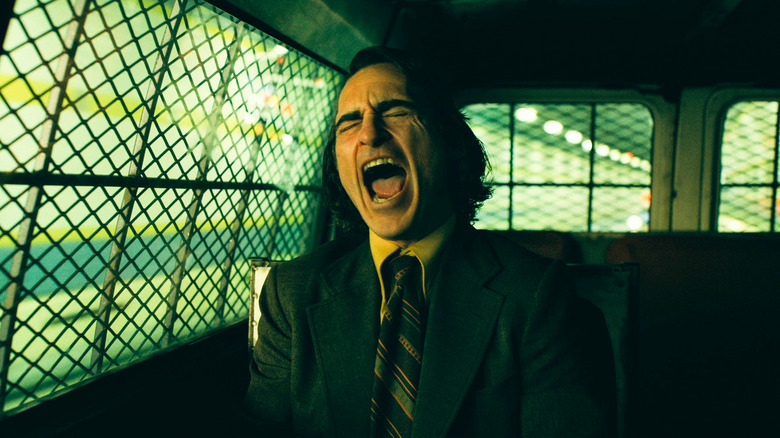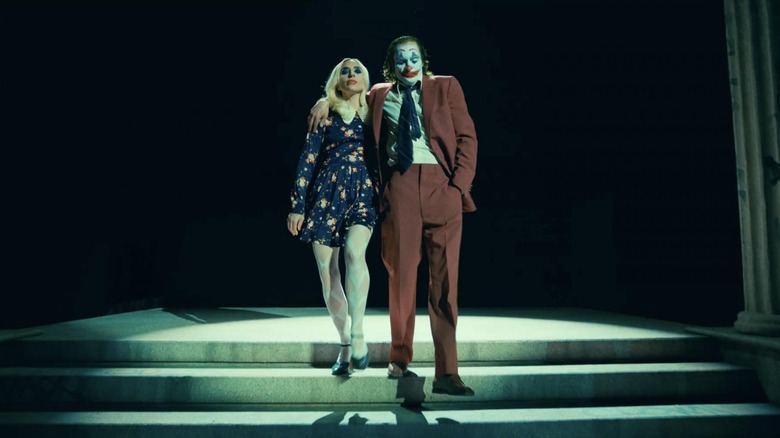One of the most anticipated movies of the fall season is nearly upon us as “Joker: Folie a Deux” is just around the corner. Director Todd Phillis is back with a sequel to 2019’s blockbuster hit “Joker.” Joaquin Phoenix is also back as Arthur Fleck, aka Joker, after winning an Oscar for his work as the DC Comics villain in the first film. The follow-up, which is going to premiere at the Venice Film Festival in early September, is far bigger than its predecessor, meaning it’s far more expensive. That’s something that has generated much discussion, and it’s a discussion that Phillips doesn’t quite seem to understand.
The filmmaker was the subject of a recent profile by Variety in honor of the forthcoming premiere of “Folie a Deux.” It was reported back in February that the “Joker” sequel has a massive $200 million budget – as opposed to the first film, which was made for a relatively reasonable $60 million. But while Phillips dismissed those reports as being “absurd” in his Variety interview, he also declined to provide any sort of counter-figure, which makes it tough to know where things stand. Speaking further though, Phillips made his position on the matter quite clear:
“I read these stories, and it seems like they’re on the side of the multinational corporations. They’re like, ‘Why does it cost so much?’ They sound like studio executives. Shouldn’t people be happy that we got this money out of them, and we used it to go hire a bunch of crew people who can then feed their families?”
There’s a lot to unpack there. First, “Joker” made just over $1 billion worldwide, trailing only Christopher Nolan’s “The Dark Knight Rises” ($1.08 billion) and “Aquaman” ($1.14 billion) as far as DC movies go at the box office. Crucially, “Joker” cost far less to make than either of those movies, meaning it was far more profitable in its theatrical run. Unfortunately for Phillips, there’s no guarantee that “Folie a Deux” will do what the first “Joker” did.
Joker: Folie a Deux is a big gamble and it didn’t need to be
Big franchise budgets have been an issue that has been bubbling up for years in Hollywood. It’s nothing new, nor is it remotely surprising that Warner Bros. would be willing to give Phillips a bigger budget for “Folie a Deux.” That having been said, it’s a very risky film — one that is now contributing to this ongoing, needless budget issue.
It’s a musical for one, meaning it might turn off certain viewers who were there the first time around. Second, it’s not like the much bigger budget — whatever the specific figure — is being used to feed starving children. Phoenix nabbed a reported $20 million payday, with Lady Gaga, who plays Harley Quinn, earning a reported $12 million. Phillips is also getting a massive salary for his participation.
That’s where Phillips’ argument falls apart a bit. As someone whose primary job is reporting on box office, I’ve seen time and time again in recent years how these sequels get needlessly expensive only to crash and burn. Just look at “Aquaman and the Lost Kingdom,” which made just $444 million worldwide on a $200 million budget — a fraction of what the first film made. Similarly, “The Marvels” struggled to make it to $200 million globally on a budget north of $200 million after “Captain Marvel” made $1.13 billion.
It’s not about siding with the corporation. When big movies fail, there are repercussions. It impacts what gets made in the future. This won’t be a problem if the sequel is a hit. Even so, “Folie a Deux” almost certainly didn’t need to cost what it ended up costing. Phillips could surely have paid his crew the same on a more “modest” budget. He also could have provided some insurance for people looking for employment on WB’s next film, which might have a harder time getting off the ground if this experiment doesn’t work.
It’s understandable that people such as myself aren’t thrilled that Phillips might have more than tripled the budget for his “Joker” sequel. That has consequences.
“Joker: Folie a Deux” hits theaters on October 4, 2024.









